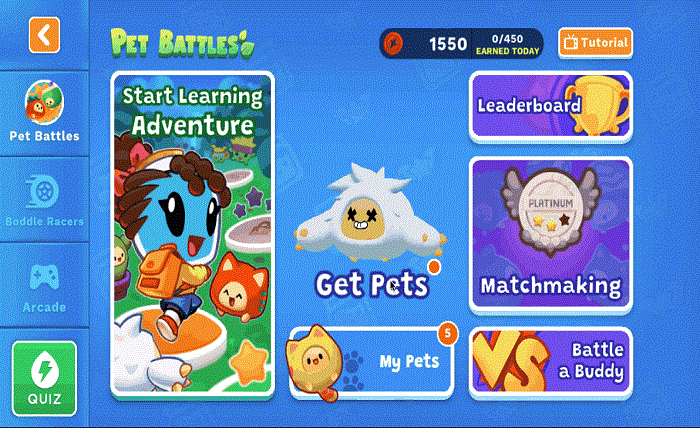
Introduction
Boddle play is a unique and enriching approach to early childhood education that encourages children to engage in interactive and imaginative learning experiences. The term “boddle play” has gained popularity in recent years, especially with the rise of interactive and gamified learning environments. This form of play goes beyond traditional learning methods by integrating both education and entertainment to capture children’s attention and spark their creativity. At its core, boddle play focuses on providing children with opportunities to explore, learn, and problem-solve in fun, immersive ways.
This article will delve into the concept of boddle play, its benefits, and how it can support children’s overall development. We’ll also explore how parents, educators, and caregivers can incorporate boddle play into everyday activities to maximize its effectiveness.
What is Boddle Play?
Boddle play can be defined as an innovative, interactive learning method that blends the physical and digital worlds. It engages children in activities that allow them to explore concepts, develop new skills, and solve problems in a playful and enjoyable way. Typically, boddle play involves the use of technology, such as games or apps, but it also integrates tangible elements like toys, puzzles, or educational kits. The purpose is to create a balanced experience that nurtures cognitive, social, emotional, and physical development.
In boddle play, children are encouraged to be active participants rather than passive observers. For instance, an app might guide a child through a series of puzzles, but the child’s participation in finding solutions and making decisions is what makes the experience valuable. This type of learning stimulates critical thinking, creativity, and decision-making skills in a way that traditional classroom instruction may not.
The Importance of Boddle Play in Early Childhood Development
Boddle play holds significant importance in early childhood development, as it nurtures various aspects of a child’s growth. The interactive nature of boddle play encourages children to engage deeply with content, which can foster a lifelong love for learning. Additionally, it builds foundational skills that are essential for success in school and life.
- Cognitive Development: Boddle play helps children develop problem-solving and critical thinking abilities. It often presents children with challenges that require them to use logic and reason, which can enhance their cognitive flexibility.
- Social Skills: In group settings, boddle play fosters collaboration, communication, and teamwork. It allows children to interact with others, learn how to share, and develop empathy.
- Emotional Growth: Through boddle play, children are encouraged to express their emotions and build resilience. The fun and engaging nature of boddle play makes it easier for children to cope with failure and celebrate success.
- Physical Development: Certain forms of boddle play include physical elements, such as puzzles, construction kits, or outdoor activities, which promote fine and gross motor skills.
How Boddle Play Enhances Learning through Technology
One of the most distinctive features of boddle play is its integration of technology. Technology can be a powerful tool for learning when used appropriately, and boddle play leverages this potential. Many modern apps, games, and digital tools are designed specifically to engage children in educational activities, making learning both fun and effective.
Interactive digital games in boddle play often provide personalized learning experiences, where children can progress at their own pace. These games adjust their difficulty based on the child’s performance, ensuring that they are continuously challenged while avoiding frustration. This personalized approach helps maintain a child’s interest and motivation.
Furthermore, many boddle play tools combine technology with creativity. For instance, children might design characters, build structures, or create stories, which not only hones their technological skills but also nurtures their artistic expression. The use of technology in boddle play can help children develop digital literacy and prepare them for the increasingly tech-oriented world they will navigate as they grow.
The Role of Parents and Educators in Boddle Play
While boddle play can be an independent experience for children, the involvement of parents and educators is crucial to maximize its potential. By actively engaging in boddle play with children, caregivers can reinforce learning, provide guidance, and help children make sense of their experiences. For example, parents can participate in the games or activities with their children, encouraging collaboration and discussion throughout the process.
Educators can also incorporate boddle play into their teaching methods by integrating it into the curriculum. Whether through digital tools or hands-on activities, teachers can use boddle play to reinforce lessons, deepen understanding, and keep students engaged. It’s important for educators to select age-appropriate activities and to tailor them to the developmental needs of each child.
Parents and educators can further support boddle play by creating an environment that encourages curiosity and exploration. Providing access to a variety of learning resources—such as books, puzzles, art supplies, and digital tools—can help children discover new interests and continue learning outside of structured settings.
Benefits of Boddle Play in Developing Key Skills
Boddle play is not just about having fun—it’s a valuable tool for developing key skills that will benefit children throughout their lives. The following are some of the core benefits of boddle play in fostering essential life skills:
- Problem-Solving: Many boddle play activities involve puzzles or scenarios that require children to think critically and solve problems. This helps to develop their logical thinking and decision-making abilities.
- Creativity and Imagination: Boddle play often encourages children to think outside the box and use their imagination. Whether through art, storytelling, or role-playing, creative thinking is an integral part of the learning process.
- Collaboration and Teamwork: Through shared boddle play experiences, children learn how to work together, share ideas, and negotiate solutions. This is particularly beneficial in a classroom setting or group play scenarios.
- Time Management: Some boddle play activities are designed to be time-bound, teaching children how to manage their time effectively, prioritize tasks, and stay focused on their goals.
- Emotional Intelligence: As children engage in boddle play, they also develop emotional intelligence by learning how to recognize and regulate their feelings. This is especially important for building self-esteem and resilience.
Integrating Boddle Play into Everyday Life
Incorporating boddle play into a child’s daily routine is easier than it may seem. Simple strategies can be adopted to promote learning and development without the need for excessive screen time or costly educational tools. Below are some ways to integrate boddle play into everyday life:
- Interactive Storytelling: Encourage children to create their own stories, either through physical play with toys or by using apps that allow them to design their own characters and narratives.
- Problem-Solving Games: Provide puzzles, board games, or logic challenges that encourage children to think critically and solve problems. These can be used as a fun way to reinforce learning.
- Outdoor Exploration: Take boddle play outdoors by encouraging children to explore nature and engage in physical activities that require them to solve problems and work together with others.
- Digital Learning Tools: Use educational apps and games that promote interactive learning. Look for tools that provide personalized experiences based on the child’s interests and abilities.
- Collaborative Projects: Engage children in creative projects, such as building something with blocks or crafting art, where they can collaborate and work together to achieve a common goal.
gia duddy, a dynamic lifestyle influencer, is making waves across social media platforms with her engaging content and inspiring journey. Known for her vibrant personality and relatable posts, Gia shares a mix of fashion, wellness, and daily life tips that resonate with her growing audience. From showcasing trendy outfits to offering a glimpse into her personal experiences, Gia’s authentic approach captivates followers worldwide. Her ability to connect deeply with her community sets her apart, making her a prominent figure in the digital space. Stay updated on Gia Duddy’s exciting ventures and lifestyle tips by following her journey!
Conclusion
Boddle play is a valuable and engaging method of learning that promotes the development of critical life skills in children. By combining fun and education, boddle play encourages children to explore, create, solve problems, and collaborate—all while developing a love for learning. Whether through digital tools, physical activities, or hands-on projects, boddle play has the potential to shape well-rounded individuals who are ready to succeed in both school and life.
Parents, educators, and caregivers can play a pivotal role in nurturing boddle play by providing the right environment, support, and resources. By doing so, they help foster the growth of creative, independent, and emotionally intelligent children who are prepared for the challenges ahead.
FAQs
1. What age group is boddle play suitable for?
Boddle play is suitable for children of various ages, from toddlers to early elementary school students. The activities and tools can be adapted based on the child’s developmental stage.
2. Is boddle play effective for both learning and fun?
Yes, boddle play is designed to combine learning with entertainment, making it both enjoyable and educational for children.
3. Can boddle play be done without digital tools?
Absolutely! Boddle play can involve physical activities, puzzles, arts and crafts, and imaginative play that don’t require digital devices.
4. How can I incorporate boddle play into my child’s daily routine?
You can incorporate boddle play by including interactive storytelling, problem-solving games, outdoor exploration, and creative projects into daily activities.
5. What are the long-term benefits of boddle play?
The long-term benefits of boddle play include improved cognitive abilities, emotional intelligence, creativity, and collaboration skills—traits that will support children throughout their lives.




